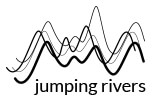
Training Course Details

Machine Learning with R
Course Level: Intermediate
This two-day course is aimed at not only teaching an understanding of some of the most common machine learning techniques, but also the approach to implementing machine learning. During this course, attendees will learn how to define a problem and prepare data, the range of techniques available for solving common problems and the approaches to take to evaluate models and achieve the best results possible.